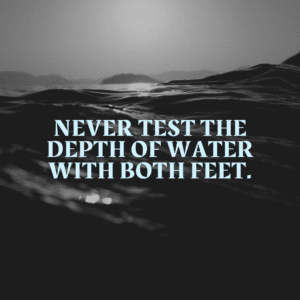A few years ago, I wrote a post about the importance of healing ourselves. If we don’t heal what has hurt us, we will bleed on people who didn’t cut us. When we are at war with ourselves, often times lurking underneath the surface is a lot of shame, anger and self-sabotage.
When I was growing up, I was at war with myself. I’d have periods of time where I felt more confident and okay being “different” from other people. But for more reasons than I can count, I just didn’t feel good enough. I feared people judging me. I hated my appearance. I had so much self-loathing, that I assumed everyone else around me felt it, too. And struggled with this well into my adult years.
When we are engaged in constant battle with our own worthiness, we inevitability cause damage to our relationships and ourselves. We become externally focused, and our mental point of origin rests in the hands of others. Our self-worth is dependent on whether or not someone else can see it, rather than seeing it for ourselves.
For some of us, we end up chasing love, constantly trying to prove our worthiness. I sure did in my younger years. And of course, I always picked a partner who reinforced the shame and feelings of not being good enough that I felt towards myself. You see, when we believe negative things about ourselves, we end up attracting people and situations that confirm those beliefs. And we get caught in a vicious cycle of seeking approval and acceptance. We also put an unfair amount of pressure on others to make us feel good about ourselves. And no one can live up to the standards we have to feel reassured.
For some of us, we wage war against ourselves by protecting our ego at all costs. We respond to situations in a defensive way and become quite toxic.
We can also project our own feelings of shame or inadequacy onto others. And even when you have worked on yourself and your self-talk for years, it can creep in.
Case in point, one summer my husband and I got stuck in the sand on the beach at Cape Kiwanda in Oregon. We were in a Jeep no less, but the sand was soft and the tide was coming in. We obviously didn’t pay attention to the conditions, and at the time, we were very inexperienced driving in sand.
When we were stuck in the sand, people around were observing us. A group of local teenage boys were close by. My initial thought was, “Wow, they must be thinking that we are so stupid” and I laughed about it but felt a bit uneasy. Even though I had a sense of humor about it, I was still projecting my own feelings of inadequacies onto others. And just as I was thinking that they came over and helped us get out. I was so grateful and thankful for the help and the lessons.
So what did I learn? One, only drive out onto the sand within two hours of low tide and try to drive between the water and high tide line. The sand will be hard packed and much easier to navigate. Two, lower the PSI (on sand, it should be about 20) on your tires before heading out onto the sand, especially of you are going to encounter soft sand.
But the most important thing I learned was that just because I think people might think we are stupid; doesn’t mean they do or that they wouldn’t help us. Looking back, I don’t know why I thought we were stuck there on our own, with so many people nearby. People are basically good and more often than not, will step in and help people.
When you have spent years at war with yourself, even when the battles are done and you have won, stay mindful of your thoughts. Like Mad Eye Moody would say, you need to practice “constant vigilance.” That bad code can creep in when you least expect it.




